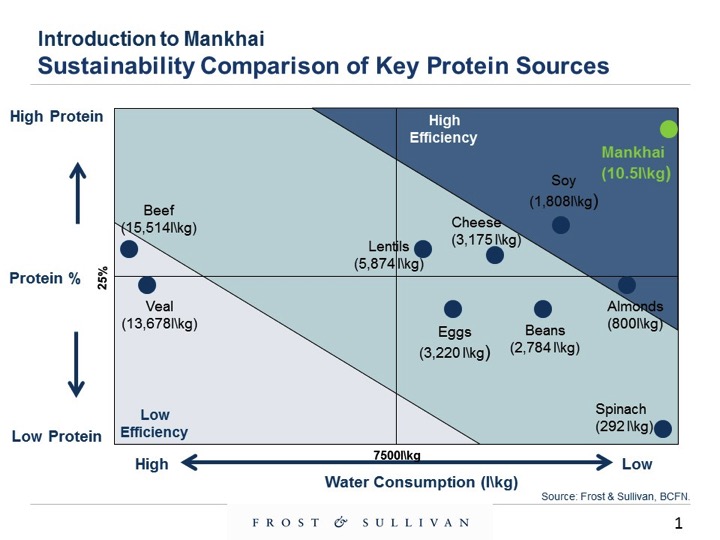HINOMAN Ltd employs a proprietary, eco-friendly cultivation process in growing the source of its high-protein ingredient, the Mankai plant. This process, which enables water savings of up to 90 percent when compared with other vegetable protein alternatives like spinach, kale and soy, offers sustainable production all year round.
“We designed a precise hydroponics cultivation system that can answer water-management challenges in a wide range of geographical locations. Hinoman’s proprietary hydroponic cultivation process is fully adjustable and suitable for vast variety of climates. It optimizes water usage and is especially applicable to semi-desert areas such as in South California, as well as colder climates,” said Udi Alroy, VP of Business Development.
“Imagine how beneficial it is for growers seeking water management solutions, including fully recyclable water management,” said Ron Salpeter, CEO. “The race for alternative protein has just begun, and the winners will be the companies that will provide a vegetal, non-GMO, high-protein ingredient, with maximum proximity to urban centers. Consumers demand high value, sustainable protein, locally or regionally sourced and with proven traceability. Hinoman offers an affordable, comprehensive solution that supports urban cultivation, or cultivation in proximity to food manufacturers.”

The Mankai plant, high-protein strain of duckweed that is grown in shallow water, is propagated by Hinoman in a semi-closed-environment system that controls and optimizes growth. The plants are free from unwanted residues and pesticides, and exceed food security requirements.
Related report: Mankai is GRAS for functional foods and beverages
nike













